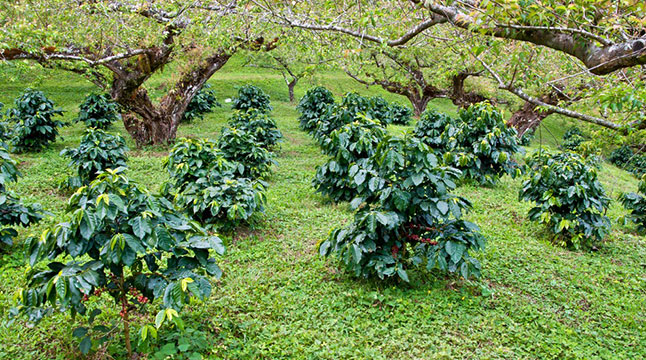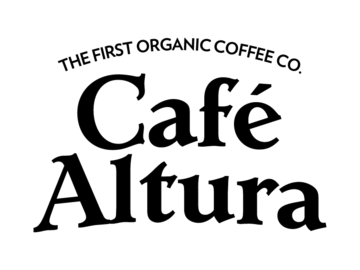
Benefits of Organic Coffee
What are the health benefits to drinking organic coffee? Research consistently shows that there are health benefits associated with consuming organic foods and beverages, and drinking a moderate amount of coffee (3-5 cups per day). When you kick-start your morning with a cup or two of organic coffee, you are reducing your risk of developing a chronic disease and at the same time protecting the environment. Those are benefits!
Organic coffee must be free of synthetic pesticides and fertilizers, and in order to be certified organic by the U.S Department of Agriculture, organic coffee farms need to adhere to practices that protect the environment and their workers.
Health Benefits of Eating and Drinking Organic Foods and Beverages
When you choose organic, you choose food and drink products that are free of chemical fertilizers and pesticides. The chemicals that are used in the growth, preparation, and treatment of conventionally-grown foods end up making their way into your home and onto your plate. The benefits of drinking organic coffee help you void the intake of what you otherwise get in conventional coffee.
Organic farmers are permitted to use organically sourced pesticides. Some of these organic pesticides are associated with toxicity, and it is important to realize that not all organic is created, or grown, equally.
To truly eat organic in a way that is aligned with your health, it is important to do your research. Get to know the company that you are buying your organic products from. Ask questions about where the product has been grown, and get to know a bit more about the farms that your supplier works with.
True organic farming works with nature, and considers the crop as a part of the ecosystem as opposed to separate from it. Biodynamic, sustainable, organic farmers think about food production in a long-term sense, and they look to tap into ecosystem services (bees, soil regeneration, manure-based fertilizers) in a way that enhances as opposed to degrades the environment.
Health Benefits Associated with Drinking Coffee
Research now shows that there are tremendous health benefits associated with drinking a moderate amount of coffee on a daily basis.
A recent article in the New York Times details the specific studies that demonstrate the long-term benefits of coffee consumption, including:
- a decrease in the risk of cardiovascular disease and heart failure
- a decrease in the risk of stroke
- the strengthening of the body’s immunity and ability to remove dangerous cells that could lead to cancer (because of the high amount of antioxidants in contains), in particular liver cancer
- data showing better laboratory results for people with liver disease
- a reduction in the risk for developing Type 2 diabetes
It should be emphasized that these benefits result from drinking actually coffee, in the form of hot water that is poured over freshly-ground (preferably organic) beans, without milk or sugar added. The same benefits are not associated with the consumer hype coffee varieties that are loaded with preservatives, artificial flavors and colors, and additives. We’re talking about the real deal.
Environmental Benefits of Purchasing Organic Coffee
Coffee is a plant that naturally prefers to grow in the shade. This means that the best coffee is not grown on an intensive plantation, but rather as a part of a rich and diverse ecosystem. These traditional shade-based methods of growing coffee do not require the pesticides and fertilizers that intensive coffee farming requires.

When a plant is in a natural and ecologically diverse environment, it does not need nutrients or pesticides because of the symbiotic relationship that exists between the variety of species. Nutrients are returned to the soil through natural mulching, and certain species of plants offer protection from pests. Yes, it takes more land to produce a certain amount of coffee, but that land can be farmed in a way that is truly sustainable.
Conventionally farmed land has a definite life span, and after it has been ‘used up’ it is commonly reverted to pasture. In Brazil, for example, many woodlands and forests are cleared to give way for rich land to support coffee production. This farmland can only be productive for approximately 12-15 years if it is intensively farmed for coffee, using pesticides and fertilizers. Then, the land is often turned into land for sugar cane, or another lower value crop. Eventually, the soil is void of nutrients and is used for pasture. When the soil has been degraded to this state, it is very difficult, expensive, and time-consumptive to rebuild the soil to a state where it can support the sort of biodiversity that it once did, pre-clearing.
Additional Benefits for Farmers of Organic Coffee and Surrounding Communities
When we sit in our modern kitchens, thousands of miles away from where the coffee has been grown, it is hard to think about the public health impacts that our consumer choices have.
Coffee is grown by farmers. When farmers and plantation workers are constantly exposed to pesticides, their health suffers as well. When pesticides run off into surface waters that are used as drinking supplies for surrounding communities, their health can also suffer. In many of the countries where coffee is grown, there is little to no regulation or guidance for chemical and pesticide use. As a consequence, these materials are overused and misused, at a detriment to the individuals at work on the plantation, or living nearby.
The National Resources Defense Council summarizes a recent World Resources Institute Report that documents farmer pesticide exposure in developing countries, stating that some of the pesticides used even have impacts upon neuromuscular functioning. A very disturbing finding of the WRI report is that “inadequate safety and hygiene practices are the norm in developing country pesticide use.”
Coffee – A Significant Global Commodity

As consumers, we want to make decisions that are in our best interest. We want to enjoy coffee, knowing that this delightful beverage is good for us, and that how it has been grown is in line with our values, and that we are not hurting others or the environment.
